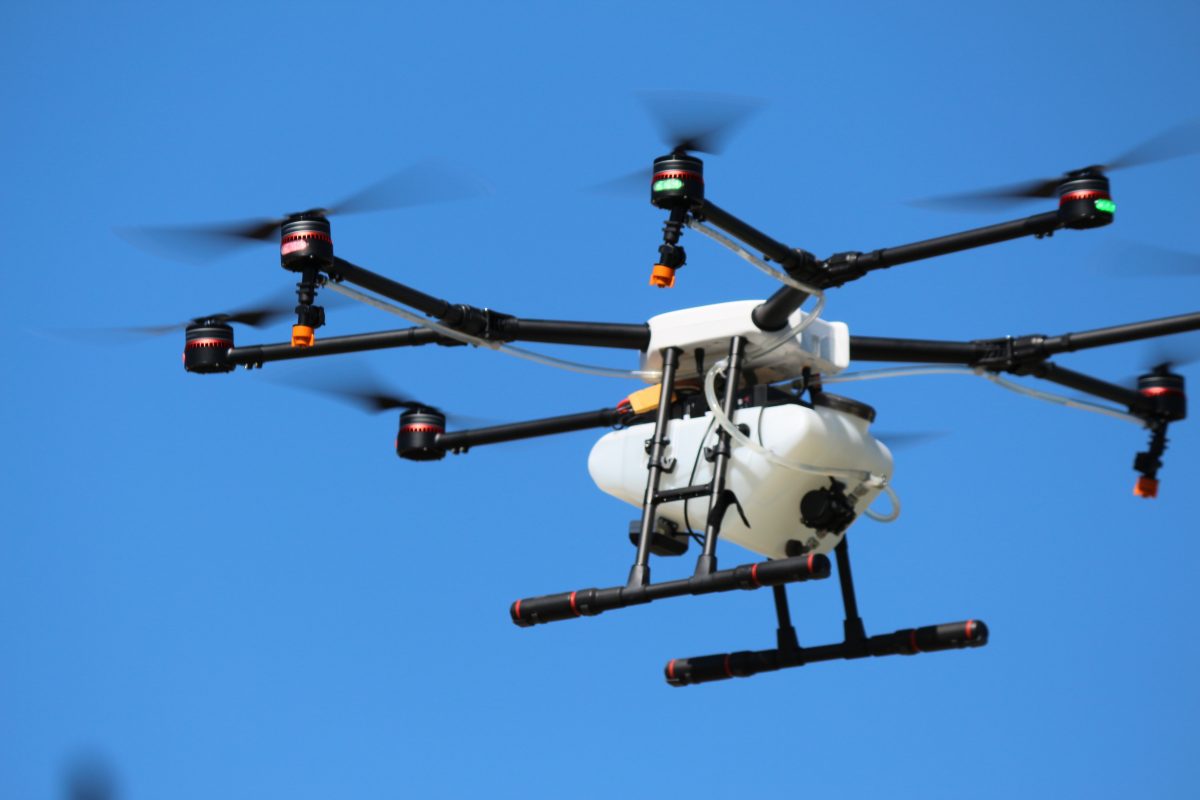Drones for Precision Agriculture: Smart digital solutions for improving rice and pineapple productivity in Benin
This drones project has been implemented by Global Partners in order to improve rural community lives.
An initiative of Global Partners

Overview of the project
Drones have seen practical applications in the health sector by delivering blood to remote areas. They are being used in rescue operations and infrastructure inspection and monitoring because of their ability to reach areas difficult of access. One field of application promising, especially in developing countries, is agriculture. Farmers in developing countries can benefit from precision agriculture services using drones capabilities. Drones imaging systems allow farmers to monitor their crop health (density, height, nutrient or water stress), estimate crop yield, sense soil characteristics (N, P, K, etc.) and identify and react quicker to threats (weeds, pests, fungi). There is also a new generation of smart crop-spraying agricultural drones. With these drones, farmers can accurately apply fertilizers, liquid pesticides and herbicides only where it is needed. They might be able to do it faster than manual spraying operations and more accurately since the drones can automatically keep a record of their past coordinates and eliminate overlay application. These digital solutions are transforming traditional farming system in developing countries as we know it. Global Partners based on their experiences developing and delivering drone services in Benin are scaling up their solution to rice farmers and pineapple producers in Benin. The specific objectives of the project are: - Improve farm productivity (yield and income) through drone-based extension services - Help decrease farmers’ fertiliser, pesticide, and water needs, use and costs using drone generated data - Attract young people to agriculture by training them to become entrepreneurs providing drone services (“dronepreneurs”) and providing them with the necessary equipment to start up. - Facilitate the dissemination of drones-based innovations and the development of drones-based solutions for other crops in BeninThi project makes agriculture attractive to youth, creates job opportunities for them and help increase agricultural productivity while decreasing the negative impacts on the environment and on farmers' health
Ongoing financing
01/08/2019 - 12/31/2021
Ongoing.
We conducted five pilot phases:
- March 2018 to March 2019: Viability assessment of unmanned aerial system (UAS) services in the context of smallholder irrigated rice farming in Benin | Project being implemented in Glazoue
- June 2018 until now: Sustainable pineapple production intensification with drones in the commune of Allada in Benin
- August 2018 to December 2018: Farmers perception of drone services in rice production
- February 2017 to March 2018: Study on cotton farmers willingness to pay for drone services
- January 2017 to August 2017: Study on comparative performance of smart spraying drones vs manual sprays
The five pilot phases help us better understand i) how farmers can benefit from drone services, ii) the impacts of the services on their livelihoods, health, and environment, iii) farmers’ acceptance and willingness to pay for the technology.
The study that compares the performances of smart spraying drones to manual sprayscompareddrones to traditional farming practices. In many developing countries, farmers spray manually pesticides on crops. This practice has a negative impact on their health, on the environment and can be costly. With smart sparing drones, farmers can apply the pesticides more efficiently and the impact on their health and on the environment is reduced.
The other pilot projects aim at examining how farmers can be provided with drone services. Some 80% of Benin's 10.3 million people earn a living from agriculture. Most are subsistence farmers. But climate change, limited access to inputs and actionable extension services are just some of the challenges they face.We equipped extension workers with drones generated data that deliver innovative, location specific and real time advice to farmers and examine farmers’ willingness to adopt the technology, to pay for it and the impact of the technology on their productivity, income and livelihoods
When comparing the performance of a spraying drone with the performance of an operator using a backpack manual sprayer we found that drones are more efficient, more accurate, cheaper, save time and have a reduced impact on the environment. In parallel our studies to evaluate farmers willingness to pay for drones' services targeted a total of 177 cotton farmers and 232 rice farmers. The results show that farmers are willing to pay an average of $5-$10/ha for drone services. The main services demanded are spraying, re-seedlings, and detection of stresses.
Our study also confirms the low access of smallholder farmer to extension services which limits effective use of modern farming practices. We used a randomized control trial to evaluate the impact of drones-based advisory services on smallholder farmers’ returns to investment. We found that the returns of farmers growing rice while benefitting from UAS-based advice is higher compared to farmers growing in comparable agro-ecological environments using traditional farming systems.
This project integrates the results from the previous phases: we offer the main services that impact farmers’ livelihoods and that farmers are willing to pay for
Self-Funded and partners
About the
organisation
organisation
Global Partners is a Benin based start-up developing and providing drone solutions for agriculture, land use planning, surveillance, and biodiversity conservation. Global Partners has a team of GIS analyst, agronomists, researchers, and drone operators and uses drones with advanced sensors and imaging capabilities to map and analyse crops, monitor infrastructure, road networks and buildings, and assist urban and regional planners. Tailored training are also offered to different stakeholders

